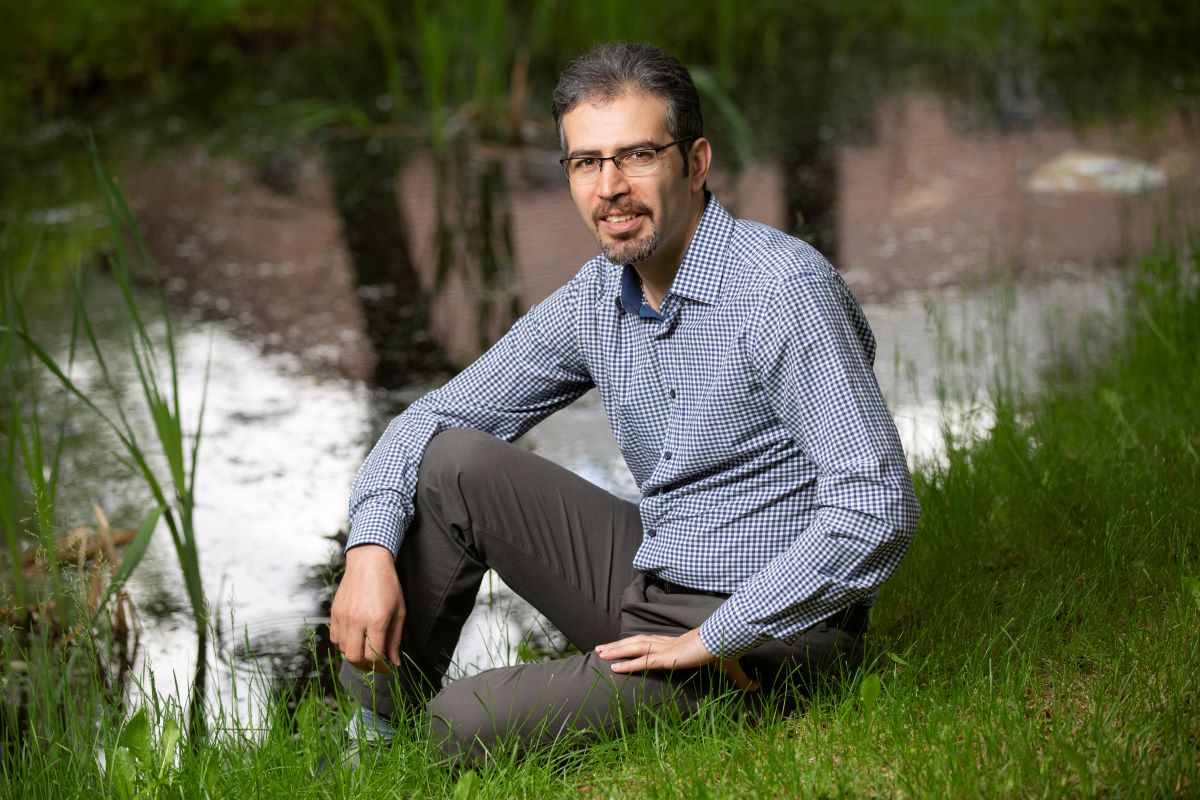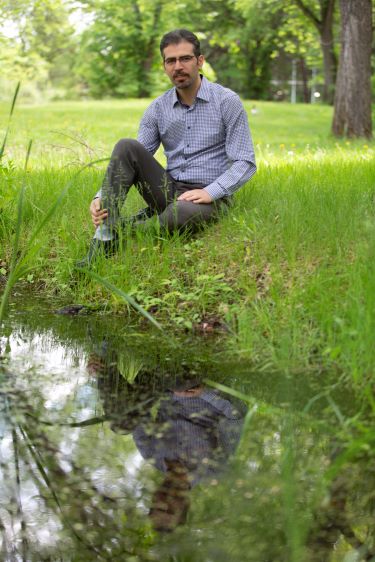
USask filter may lead to safer drinking water
Chemical engineering PhD student Zoroufchi Benis has recently been awarded a prestigious 2020 Vanier Canada Graduate Scholarship.
By Federica GiannelliA University of Saskatchewan (USask) chemical engineering graduate student is developing a new environmentally friendly bio-filter that can remove arsenic from water and could help make drinking water safer across Canada and worldwide.
“Our filter aims to remove the arsenic from water by combining two natural materials that have separately shown promise for capturing this metal,” said Zoroufchi Benis, a USask PhD student from Iran who has recently been awarded a prestigious 2020 Vanier Canada Graduate Scholarship.
One third of Canadians rely on groundwater as a source for drinking water. Newfoundland made headlines in 2018 when traces of arsenic were found in some of its groundwater at levels 40 times higher than recommended guidelines. While arsenic is naturally present in water at various concentrations, these natural levels are not always safe, as exposure to arsenic may cause health problems such as cancer, diabetes and heart diseases.
“Our bio-compatible filter may have an impact around the world in countries such as India and Bangladesh as well where arsenic contamination is a big issue,” said USask chemical engineering professor Jafar Soltan, Zoroufchi Benis’ co-supervisor.
The USask filter uses a “bedding” material made of biochar—activated carbon, a dark powder created from agricultural waste—and microalgae. Naturally found in water, some types of microalgae are highly resistant to arsenic but also can absorb it in their bodies.

Zoroufchi Benis will use the Canadian Light Source synchrotron at USask to study the properties of these materials and create more efficient bio-filters.
The goal is to produce an alternative treatment method for arsenic-contaminated waters that would be cheaper and safer compared to the current expensive processes that rely on chemicals.
The USask bio-filter will be designed to produce highly concentrated and stable arsenic waste that can be stored safely. The filter will also be adaptable both to industrial and household uses.
“We will also make sure that our materials will not interact with the metal in a way that becomes more toxic when it is removed,” said Zoroufchi Benis.
While this research is still in the early stages, the USask team has focused on improving the ability of the bedding biochar material to capture arsenic. Two papers have been submitted for publication this fall.
The next step will be to find and adapt the right microalgae for the filter.
“Arsenic contamination in water is a historic and ongoing Canadian and worldwide human health issue and our team is confident this research will result in an effective bio-filter technology,” said Kerry McPhedran, USask Centennial Enhancement Chair and Zoroufchi Benis’ co-supervisor.
With $150,000 awarded to recipients over three years, the Vanier Scholarship is a competitive federal program that recognizes top-tier doctoral students who demonstrate excellence in academia, research impact and leadership at Canadian universities.
“Being here at the University of Saskatchewan and being a Vanier recipient will help me to reach my dream of doing something for saving the environment,” said Zoroufchi Benis.
Federica Giannelli is a CGPS-sponsored graduate student intern in the USask research profile and impact unit.
This article first ran as part of the 2020 Young Innovators series, an initiative of the USask Research Profile and Impact office, in partnership with the Saskatoon StarPhoenix.

